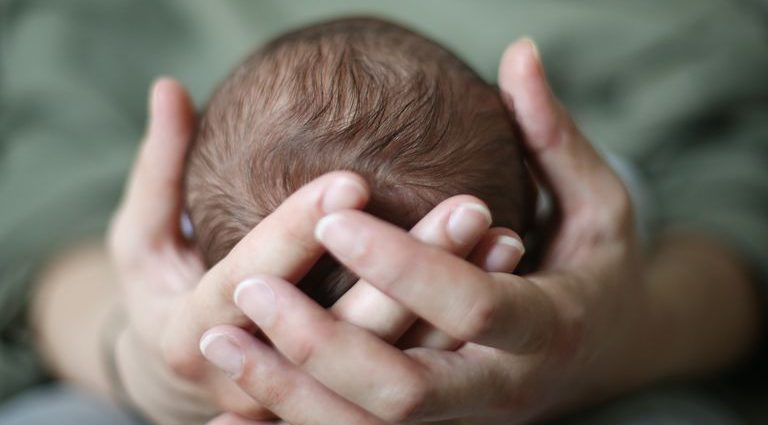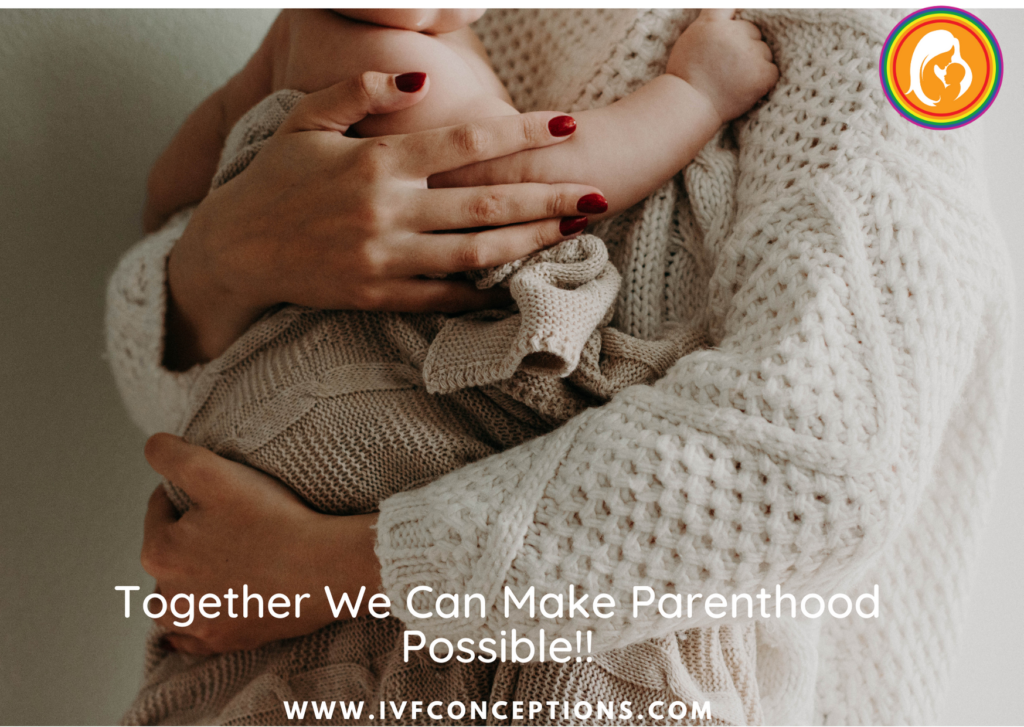Female Infertility: Understanding the Causes, Risk Factors, Diagnostic Tests, and Treatment Options

1 out of 8 couples experience infertility and some causes of female infertility are not known. Female infertility is a condition characterized by the inability to conceive and carry a pregnancy to term. When a woman and her partner have been actively trying to conceive through unprotected sexual intercourse for a period of 12 months without achieving pregnancy, it is typically diagnosed as infertility. However, depending on certain factors, such as the woman’s age or other underlying health conditions, diagnosis may be made sooner. What are the causes of female infertility can be explained after fertility analysis by an endocrinologist.
Female Infertility is medically defined as a failure to conceive within one or more years of regular unprotected sexual intercourse or coitus. Although there is an age factor involved, in younger females a chance of conception is sooner, maybe within 6 months.
Infertility can stem from a variety of causes, including both medical conditions and lifestyle factors. Identifying the root cause is crucial in developing an effective treatment plan. In many cases, fertility issues can be successfully addressed, enabling couples to fulfill their dreams of starting a family.
Female infertility definition can be described as not conceiving a baby even after one year of unprotected sex. In some cases, females do conceive but have an early miscarriage, which has no apparent reason. Female infertility Tests can be carried out by the infertility specialist to seek the reasons for such events and to avoid them.
Types of infertility
Conception and its changes are attributed to the fertility potential of both the male and female partners. The male is responsible for 30-40% of cases of infertility while females are responsible for about 40-55%. Both are responsible for about 10% of cases while the rest 10% is unexplained.
There are basically 3 types of infertility:
#1. Female infertility
#2. Male infertility
#3. Unknown infertility
Female Infertility
Infertility in females can be relative or absolute.
By relative infertility, we refer to those periods in a woman’s life cycle/ reproduction cycle when chances of fertilization are almost nil. Relative infertility is due to certain physiological conditions and thus cannot be described as an abnormality.
The reproductive cycle in an average woman spans from 12 to 45 years of age. This is the period when a woman is “fertile”. Prior to the age of 12, when the menstrual cycle has not yet begun, a woman is physiologically infertile. Also, after around the age of 45 years when a woman has attained menopause, she cannot conceive.
However, it should be remarked that there have been instances when a woman has conceived outside the age of reproduction, that is, before the onset of menarche and after reaching menopause.
Conception is not possible during pregnancy due to certain hormonal factors in the mother which prevent ovulation.
During lactation, ovulation and conception may or may not occur. In fully and actively lactating women, pregnancy is unlikely up to 10 weeks after delivery.
 Female infertility symptoms
Female infertility symptoms
The first and most common female infertility symptoms are not able to conceive naturally even after trying unprotected intercourse for a year. Due to the stigma attached to such topics, females are unable to seek help from the right medical professionals.
Most of the cases of infertility are first treated at home which is not scientifically proven and once things go out of hand, parents seek medical help.
The International Federation of Gynaecology and Obstetrics (FIGO) enlists the following causes mainly responsible for female infertility:
- Ovulatory dysfunction
- Tubal disease
- Uterine factors
- Cervical factors
- Pelvic endometriosis
#1. Ovarian Factors
Infertility in a woman can be directly attributed to dysfunctions in the ovary and ovulation which account for 30-40% of cases of female infertility.
- Anovulation or oligo-ovulation refers to the condition when the ovum is not released by the ovary at all or such release is irregular. It is most likely due to disturbances in the hormonal balance in the body, either due to thyroid or adrenal problems. It may also be due to conditions such as polycystic ovarian syndrome (PCOS/PCOD) or because of high age.
- After a successful conception, for the first few days, an entity called the corpus luteum in the ovary maintains the uterus so that implantation may occur and the product of conception may start growing. But any defect in the corpus luteum may again cause the failure of implantation leading to infertility. This is known as Luteal Phase Defect and this can again be due to hormonal imbalance, use of certain drugs and medication, older women, endometriosis, unnatural uterine bleeding, etc.
#2. Tubal Factors
Tubal factors are responsible for around 25-35% of cases of female infertility.
For successful conception and implantation, the Fallopian tubes have to be patent. Any defect in the tubes, which may lead to its partial or complete closure will affect fertility directly.
Pelvic infections in women due to Chlamydia and gonococcus, tuberculosis can cause such abnormalities in the Fallopian tubes.
#3. Uterine Factors
The endometrial layer of the uterus, which lines the uterine cavity, must be adequately receptive for the product of conception to get implanted and start growing to develop into the fetus.
Conditions such as uterine hypoplasia, inadequate secretory endometrium, fibroid uterus, endometritis, or congenital malformations of the uterus fall under uterine factors of infertility, responsible for about 10% of cases.
#4. Cervical Factors
The cervix is an important part of the female reproductive tract. Any anatomical aberration in the cervix, such as congenital elongation of the cervix or second-degree uterine prolapse will lead to infertility.
The mucous secretion of the cervix may also hinder successful fertilization if it is too thick for the sperm of the male to penetrate and enter the female’s genital tract.
#5. Vaginal Factors
Atresia or degeneration of the vagina (complete or incomplete), vaginal septum, or narrow introitus- are all congenital malformations that may lead to infertility in a woman. Infections or more specifically inflammation of the vagina referred to as vaginitis may be an important cause of infertility.
Risk Factors for Female Infertility
Several factors can increase a woman’s risk of experiencing infertility. These factors include:
- Age: As women age, their fertility declines. The number and quality of eggs diminish, making conception more challenging. Women over the age of 35 are at a higher risk of fertility issues.
- Hormonal Imbalances: Any hormonal condition that disrupts the normal ovulation cycle can contribute to infertility.
- Abnormal Menstrual Cycles: Irregular or painful menstrual cycles can be indicative of underlying issues that affect fertility.
- Body Weight: Both obesity and being underweight can disrupt hormonal balance and interfere with reproductive function.
- Structural Problems: Conditions such as fallopian tube abnormalities, uterine fibroids, cysts, and tumors can impede pregnancy.
- Endometriosis: This condition occurs when the tissue that lines the uterus grows outside of it, affecting the function of the reproductive organs.
- Autoimmune Disorders: Conditions like lupus, rheumatoid arthritis, Hashimoto’s disease, and other thyroid gland disorders can impact fertility.
- Sexually Transmitted Infections (STIs): Infections like chlamydia and gonorrhea can cause pelvic inflammatory disease, leading to tubal factor infertility.
- Polycystic Ovary Syndrome (PCOS): PCOS is a hormonal disorder characterized by irregular ovulation and the presence of cysts on the ovaries.
- Primary Ovary Insufficiency (POI): POI refers to the loss of normal ovarian function before the age of 40, resulting in reduced fertility.
- Substance Use: Heavy drinking and smoking can have detrimental effects on fertility.
- DES Syndrome: DES (diethylstilbestrol) was a medication given to pregnant women decades ago to prevent complications. Unfortunately, it has been linked to infertility in some individuals exposed to it in utero.
These risk factors highlight the importance of addressing one’s overall health and lifestyle choices to optimize fertility.
Diagnosing Female Infertility
Accurately diagnosing the cause of female infertility requires a thorough evaluation conducted by a healthcare provider specializing in reproductive medicine. The diagnostic process may include the following:
Medical History and Physical Examination
Your healthcare provider will inquire about your menstrual history, past pregnancies, any pelvic pain, abnormal vaginal bleeding or discharge, as well as any prior pelvic surgeries. A physical examination will be performed to assess the health of your reproductive organs.
Laboratory Tests
Blood tests will be conducted to evaluate hormonal levels, thyroid function, ovarian reserve, and other relevant factors. Additionally, specific tests may be ordered based on your individual health history and suspected diagnoses.
Imaging Tests
Various imaging techniques, such as pelvic ultrasounds, X-rays with contrast dye (HSG), laparoscopy, and transvaginal ultrasound, may be employed to visualize and assess the reproductive organs, including the uterus, fallopian tubes, and ovaries.
The combination of these diagnostic tests will provide valuable insights into the potential causes of infertility and guide the development of an appropriate treatment plan.
Treatment Options for Female Infertility
Female infertility Tests play a vital role to find out the cause of infertility in females. The doctor needs a good first consultation with both parents to know about:
- Family history
- Reproductive history
- Life style
- Work stress
- Both male and female infertility tests results
Once the doctor has done an analysis based on the above parameters, he can decide the adequate line of fertility treatment for the female.
Female infertility treatment can be as simple as choosing the right days for intercourse or doing some lifestyle changes. Taking the right diet and exercise resume can be a good option to get started.
But, in some cases, the infertility issues are deep down and might need more invasive, costly, and long-term infertility treatments like:
- IUI
- IVF
- IVF with an egg donor
- IVF with the sperm donor
- IVF with surrogacy
- Genetic screening
Once the cause of infertility has been identified, there are several treatment options available. The treatment plan will be tailored to address the specific underlying factors contributing to infertility. Some common treatment options include:
- Medications: Hormonal medications can be prescribed to regulate ovulation, correct hormonal imbalances, or stimulate egg production.
- Surgery: Surgical interventions may be necessary to address structural abnormalities, remove polyps or fibroids, repair fallopian tubes, or correct other anatomical issues that hinder pregnancy.
- Assisted Reproductive Technologies (ART): Techniques such as in vitro fertilization (IVF), intracytoplasmic sperm injection (ICSI), and intrauterine insemination (IUI) can help overcome various fertility challenges by facilitating the fertilization process and supporting embryo implantation.
- Donor Options: For individuals facing severe infertility challenges, the use of donated eggs, sperm, or embryos may be a viable option.
- Adoption and Surrogacy: For those unable to conceive naturally or through fertility treatments, adoption or gestational surrogacy can provide alternative paths to building a family.
The choice of treatment will depend on the specific circumstances and needs of each individual or couple. It is essential to consult with a qualified healthcare provider who specializes in fertility to explore the best options for your unique situation.
 Conclusion
Conclusion
In conclusion, female infertility is a complex condition with various causes and treatment approaches. By empowering yourself with knowledge and seeking expert guidance, you can navigate this journey with confidence and hope. Remember, you are not alone, and there is support available to help you fulfill your dreams of parenthood.
The best thing, however, is to consult a trained medical professional, preferably a fertility specialist, to know more about female infertility treatments.
Your fertility expert can do a few tests on both male and female partners. After consultation and going through the result of the test, your fertility expert can advise what types of infertility you have and adequate treatments for your specific case.
Women are encouraged to know the infertility symptoms and take medical help as soon as possible if they are in the higher age group.
Most infertility treatments with an egg donor or surrogacy process are time-consuming and costly treatments, so it is advised to seek the help of an infertility specialist as soon as you come to know about your condition.
Please note that most causes of female infertility are known and if you consult in time, it is possible to achieve parenthood. If you’d like to learn more about IVF, Egg Donation, or surrogacy services globally, check out the rest of our website: IVF Conceptions. We offer legally secure and affordable surrogacy consulting services for FREE.
FAQs About Female Infertility
Question: What are the common causes of female infertility?
Answer: The common causes of female infertility include
- Ovulation disorders, such as polycystic ovary syndrome (PCOS) and hypothalamic dysfunction, affect the release of mature eggs.
- Problems with the fallopian tubes, such as pelvic inflammatory disease (PID), can also lead to infertility.
- Issues with the uterus, such as polyps, fibroids, septum, or adhesions, can interfere with implantation.
- Hormonal imbalances, thyroid conditions, severe stress, and pituitary tumors can disrupt ovulation.
- Additionally, age-related factors play a significant role, as women have a finite number of eggs, and their quality decreases over time.
- Genetic factors, including chromosomal abnormalities in eggs, can impact fertility.
- Lifestyle factors like obesity, being underweight, excessive exercise, smoking, and substance abuse can contribute to infertility.
- Certain medical conditions like endometriosis, autoimmune disorders, sexually transmitted infections (STIs), and hormonal disorders like primary ovary insufficiency (POI) or polycystic ovary syndrome (PCOS) can also affect female fertility.
Question: Can hormonal imbalances contribute to female infertility?
Answer: Yes, hormonal imbalances can contribute to female infertility. Conditions like polycystic ovary syndrome (PCOS) and hypothalamic dysfunction can disrupt the normal hormonal regulation necessary for ovulation.
In PCOS, hormonal imbalance affects ovulation, and it is one of the most common causes of female infertility. Hormonal imbalances can result in irregular or absent menstrual cycles, preventing the release of mature eggs needed for fertilization. Imbalances in hormones produced by the hypothalamus or pituitary gland can also lead to ovulation disorders and infertility.
Question: Are there lifestyle factors that can affect female fertility?
Answer: Yes, several lifestyle factors can affect female fertility. Obesity and being underweight can both have negative impacts on fertility. Extreme exercise and low body-fat content can disrupt hormone production and ovulation. Smoking and substance abuse, including heavy drinking, can reduce fertility. It is important to maintain a healthy lifestyle and body weight to optimize fertility.
Question: How does age impact a woman’s fertility?
Answer: Age has a significant impact on a woman’s fertility. As a woman ages, her fertility declines due to a decrease in the number and quality of eggs. Women are born with a finite number of eggs, and as they age, the remaining eggs diminish in quantity and quality.
Older eggs have a higher risk of chromosomal abnormalities, making successful fertilization and implantation less likely. Women over the age of 35 have a higher risk of experiencing fertility issues compared to younger women.
Question: What role do genetics play in female infertility?
Answer: Genetics can play a role in female infertility. Certain genetic conditions, such as chromosomal abnormalities, can impact fertility. Some women may have genetic disorders that affect hormone production, ovulation, or the structure of the reproductive organs. Inherited conditions like primary ovary insufficiency (POI) and polycystic ovary syndrome (PCOS) can contribute to infertility. Genetic testing may be recommended in cases where a genetic factor is suspected to be involved in infertility.
Question: Can certain medical conditions lead to female infertility?
Answer: Yes, certain medical conditions can lead to female infertility. Conditions like endometriosis, pelvic inflammatory disease (PID), uterine fibroids, polyps, and adhesions can interfere with the normal functioning of the reproductive organs and affect fertility. Autoimmune disorders, sexually transmitted infections (STIs), and hormonal disorders like primary ovary insufficiency (POI) or polycystic ovary syndrome (PCOS) can also contribute to infertility.
Question: Is it possible to overcome female infertility?
Answer: In many cases, female infertility can be overcome with appropriate treatment. The specific treatment options depend on the underlying cause of infertility. Ovulation disorders can often be addressed with medications to regulate hormone levels and stimulate ovulation. Surgical interventions may be necessary to correct structural issues in the reproductive organs.
Assisted reproductive technologies (ART), such as in vitro fertilization (IVF), can be used in cases where other treatments have not been successful. It is important to consult with a healthcare professional or fertility specialist to determine the best course of action based on individual circumstances.
Question: What are the available treatment options for female infertility?
Answer: The available treatment options for female infertility depend on the underlying cause. Some common treatment options include fertility medications to stimulate ovulation, surgical interventions to correct structural issues in the reproductive organs, intrauterine insemination (IUI) to facilitate fertilization, and assisted reproductive technologies (ART) such as in vitro fertilization (IVF).
The choice of treatment depends on factors like the cause of infertility, the age of the woman, and other individual factors. It is recommended to consult with a fertility specialist to determine the most suitable treatment approach.
Question: Can stress and emotional factors impact female fertility?
Answer: Yes, stress and emotional factors can impact female fertility. High levels of stress can disrupt hormonal balance and interfere with ovulation. Emotional factors like anxiety and depression can also contribute to fertility issues.
It is important to manage stress and prioritize emotional well-being when trying to conceive. Techniques such as relaxation exercises, counseling, and support from loved ones can be beneficial in reducing stress and improving fertility outcomes.
Question: How long should we try to conceive before seeking medical help?
Answer: The recommended timeframe for seeking medical help when trying to conceive depends on various factors, including age. Typically, if a couple under the age of 35 has been trying to conceive for at least a year without success, it is advisable to seek medical assistance.
However, for couples where the woman is over 35, it is recommended to seek medical help after six months of trying. If there are known fertility issues or specific concerns, it is also appropriate to seek medical advice earlier.
Question: Are there natural remedies or lifestyle changes that can improve fertility?
Answer: While lifestyle changes and natural remedies may not address all causes of infertility, they can positively impact fertility in some cases. Maintaining a healthy weight, exercising regularly, and following a balanced diet can improve overall reproductive health.
Avoiding smoking, excessive alcohol consumption and drug use can also enhance fertility. Stress reduction techniques such as yoga, meditation, and relaxation exercises may help improve fertility outcomes.
However, it is important to consult with a healthcare professional or fertility specialist to determine the most appropriate course of action based on individual circumstances.


 Female infertility symptoms
Female infertility symptoms 

 Conclusion
Conclusion
